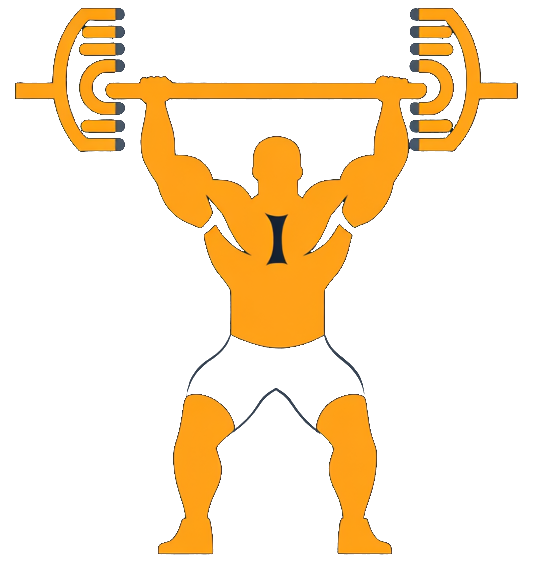CrossFit has taken the fitness world by storm, bringing with it a unique blend of intense workouts and community spirit. But there’s an ongoing debate: Can you thrive as a vegetarian or vegan within this demanding discipline? The answer is a resounding yes! This article delves into the strategies, benefits, and insights for anyone considering a plant-based approach to their CrossFit journey.
Understanding how to fuel your body appropriately is crucial in any fitness regime, particularly within the high-intensity framework of CrossFit. The practices around macronutrient balance, meal timing, and hydration become even more pivotal when navigating plant-based diets. As a vegetarian or vegan, it may seem daunting to match the nutritional needs typically associated with meat-based diets. However, with careful planning and execution, your plant-based lifestyle can offer everything needed to succeed in CrossFit.
Embracing a Plant-Based Lifestyle in CrossFit
CrossFit, often perceived as a domain dominated by animal protein, has a flourishing community of vegetarians and vegans. To truly embrace a plant-based lifestyle while engaging in CrossFit, understanding the nutritional components is vital. Here, we take a closer look at the foundational aspects that can make your journey successful.
Nutrition Fundamentals
It’s essential to pay attention to macronutrients: carbohydrates, proteins, and fats. Each plays a critical role in performance and recovery.
Carbohydrates: These are your primary energy source, especially during intense workouts. Opting for complex carbs such as sweet potatoes, quinoa, and whole grains can provide sustained energy levels throughout the day.
Proteins: Essential for muscle recovery and growth, plant-based proteins can be found in legumes, tofu, tempeh, and seitan. Aiming for 1.6 to 2.2 grams of protein per kilogram of body weight daily is recommended for CrossFit athletes.
Fats: Healthy fats from sources like avocados, nuts, and olive oil not only help with hormone production but also aid in nutrient absorption and offer satiety after meals.
Meal Timing and Pre/Post-Workout Nutrition
Timing your meals is crucial for optimizing performance. Consuming a balanced meal containing carbohydrates and protein about 2 to 3 hours before your workout provides the energy needed to power through your session.
Erroring on the side of caution, having a smaller snack rich in carbohydrates (like a banana or a slice of whole-grain bread with nut butter) shortly before the workout can help maintain those energy levels. After the workout, it’s vital to refuel your body. The magic window of recovery typically lies within 30 minutes post-exercise, where the body craves both carbohydrates and protein to replenish glycogen stores and kickstart recovery.
Hydration Essentials for CrossFit Athletes

Staying hydrated is fundamental in any fitness plan, and it’s even more pronounced within the environment of CrossFit. Proper hydration leads to better performance and recovery. Aim to drink half your body weight in ounces of water daily. For instance, if you weigh 180 pounds, strive for 90 ounces of water each day.
During workouts, consider electrolyte-replenishing options, especially in intense sessions where you sweat profusely. Electrolyte drinks can help replace lost minerals.
Listening to Your Body
It’s paramount to listen to how your body reacts to various dietary changes. Some athletes may thrive on higher carb intake, while others might discover they perform better with increased fats in their diet. Keeping a food journal can help track how different foods impact your energy levels and performance.
Building a Supportive Community
The CrossFit community is known for its supportive environment, where athletes encourage one another regardless of dietary choices. Finding others who embrace a plant-based lifestyle can bolster motivation and accountability. There are numerous social media groups and local communities focused on fitness and plant-based living, where advice and support can be exchanged.
Connection Beyond Fitness
Often, the relationships formed within the gym extend beyond workouts. Joining local or online groups tailored to vegan or vegetarian athletes can provide fresh ideas, meal prep tips, and motivation. Regular interactions with like-minded individuals can enrich your CrossFit experience and enhance accountability for sticking to your nutrition goals.
Planning and Meal Prepping for Success

Meal planning and preparation can significantly impact your ability to stick to a nutritious diet. Setting aside time for planning meals and prepping your food in advance ensures you have healthy options readily available, thus curbing any temptations.
Strategies for Effective Meal Prep
Consider batching food items, such as cooking multiple portions of grains or legumes and storing them in containers. Having pre-prepared snacks that align with your dietary needs also prevents unhealthy choices when hunger strikes.
Additionally, diversifying your meals keeps them enjoyable. Explore various recipes that incorporate a blend of proteins, carbs, and veggies to keep your palate excited while ensuring proper nutrition.
Adapting to Challenges
Adapting to a CrossFit routine can come with its own set of challenges, particularly when transitioning to a plant-based diet. However, understanding common pitfalls can help in overcoming these hurdles.
Common Nutritional Concerns
Some athletes may worry about obtaining sufficient protein or iron on a plant-based diet. Incorporating a variety of high-protein foods such as beans, lentils, quinoa, and tofu can mitigate these concerns. For iron, focus on sources like chickpeas, broccoli, and fortified cereals while pairing them with vitamin C-rich foods to enhance absorption.
Doesn’t hesitate to keep experimenting until you find your dietary sweet spot. Be unwavering in your pursuit of aiming to meet your nutritional requirements.
Engaging with Nutritional Resources

Staying educated about nutrition can significantly enhance your CrossFit experience. There are numerous resources available – from books written by experts to online courses specializing in plant-based nutrition for athletes.
Further Reading and Support
Consulting with a certified nutrition coach who understands the demands of CrossFit can provide personalized recommendations tailored to your needs. Communities on social media can offer access to recipe swaps and nutritional advice among fellow athletes.
Explore various blogs and websites dedicated to supporting athletes on plant-based journeys. Engaging with these platforms fosters a sense of belonging and further establishes an individual’s nutritional knowledge.
